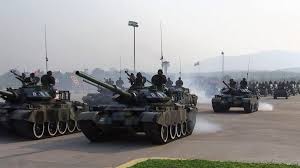The takeover in Myanmar presents a test for the international community.
The U.S. President Joe Biden called the military’s actions “a direct assault on the country’s transition to democracy and the rule of law” and threatened new sanctions.
The U.N. Security Council held an emergency meeting Tuesday but took no action.
Suu Kyi’s party released a statement Tuesday calling for the military to honor the results of the election and release all of those detained — as have the leaders of many other countries.
“The commander in chief seizing the power of the nation is against the constitution and it also neglects the sovereign power of people,” the party said.
An announcement read on military-owned Myawaddy TV on Monday said Commander in Chief Senior Gen. Min Aung Hlaing would be in charge of the country for one year. A new Cabinet composed of current and former generals and former advisers to a previous government headed by former Gen. Thein Sein held its first meeting Tuesday.
The takeover marked a shocking fall from power for Suu Kyi, a Nobel Peace Prize laureate who had lived under house arrest for years as she tried to push her country toward democracy and then became its de facto leader after her party won elections in 2015.
Suu Kyi had been a fierce critic of the army during her years in detention. But after her shift from democracy icon to the politician, she worked with the generals, who despite allowing elections maintained control of key ministries and guaranteed themselves enough seats in Parliament to have veto power over any constitutional changes.
The U.N. envoy for Myanmar, Christine Schraner Burgener, urged the U.N. Security Council “to collectively send a clear signal in support of democracy in Myanmar.”
She said the Security Council’s fundamental role must be “ensuring democracy is expeditiously restored and the country does not fall back into isolation.” Diplomats said that was the key element of a draft statement for the council to release, along with a call for the immediate release of all those detained.
But the statement was not issued because it requires support from all 15 council members, and China, which has close ties to Myanmar, and Russia said they needed to send it to their capitals, the diplomats said, speaking on condition of anonymity because the meeting was closed.
British U.N. Ambassador Barbara Woodward, the Security Council president, said, “Discussions will continue among council colleagues on next steps. I certainly hope that we will be able to speak with one voice.”



